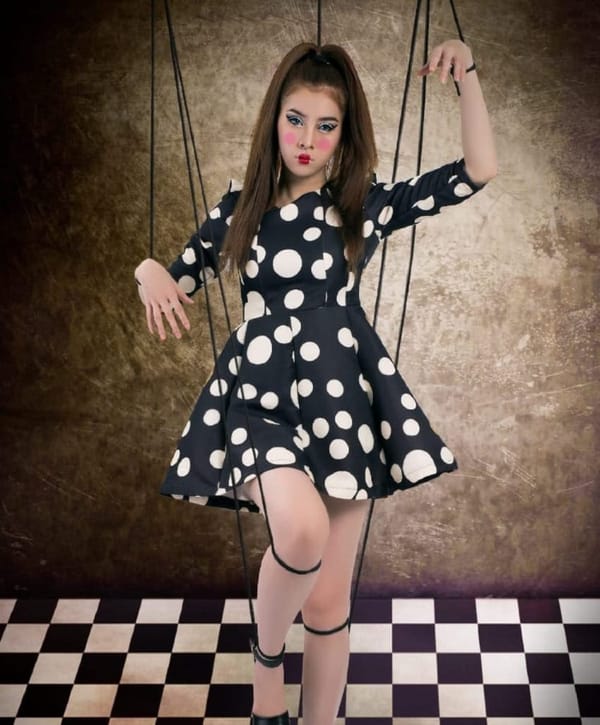Am I Wrong? How Gaslighting Makes You Question Reality—and How I Remind Myself What’s Real

The Word "Gaslighting" — A Buzzword We All Hear, But Do We Understand It?
"Gaslighting", one of those buzzwords we hear all the time. Its used so often to describe a myriad of manipulative behaviors that the true meaning is often lost. The term “gaslighting” stems from a 1930’s play called Gas Light. In it, the main character is ultimately trying to convince his wife that she’s going insane by dimming the gas lights in their home ever so slowly while convincing her the darkening house is all in her imagination. Later, the play was adapted into a movie starring Ingrid Bergman as the woman questioning her sanity.
"Her husband’s lie is so convincing, so unwavering, that Bergman begins to believe she is truly unraveling. She becomes dependent on her husband to discern fact from fiction while he confines her in her house for her own good. You know, because she’s insane and all.”
Source: Guide to Gaslighting
My Experience with Gaslighting
I have over 1500 screenshots of text conversations saved on my phone. That doesn’t include the apps where old messages are archived. I kept thousands of conversations, videos, and voice recordings throughout our relationship. Only the first few months of our interactions are missing. I didn’t need to keep records then. When we first met, I never would have imagined a reason for needing them.
I use them now as a reminder of what happened. He taught me to doubt my mind so well that even now, the memories feel surreal and like they couldn’t be possible. The reality floats around my head but the proof grounds me. I read some of them and am reminded - yes. It really happened. He did really say and do those things. It’s not my perception that’s off; I do not remember “wrong.”
I’d ask to go somewhere or talk to someone, and he would deny giving it. He’d deny the things he said or did. He’d tell me I remembered wrong. He’d say I was confused, and that my past trauma affected my memory. That what I'd gone through cast a shadow on my perceptions, and the cruel things he said weren’t callous- he was just being helpful… honest. He said "you see danger in me when there is none." He claimed he was a great guy, "one of the good ones".
Holding my ground to defend my own memory and experience was pointless. It was easier to nod and apologize and tell him he was right. Times when I was brave and showed him a screenshot of the permissions he had given me, he was angry because he felt it showed a lack of trust in him, and then the discussion would become about my failure to trust him, instead of the proof I was showing him.
The Manipulation of Emotions
He saw my tears as manipulation so I learned to keep them in. He often accused me of lying, and hiding flaws - and to be completely honest- there were times I did. I agreed with him - when I didn't. I'd tell him what I knew he wanted to hear because it was safer and less painful for me than the alternatives. I often wish I had been stronger and stood up for myself more- but I also wonder about how much worse it could have been for me if I had.
It's complicated because I also have beautiful memories of him and our time together, cognitive dissonance is challenging to reconcile, and my brain feels divided against itself. We would have a beautifully deep and meaningful experience together. Then a few hours later, he’d tell me what a disappointment I was. How was he both wonderful and terrifying? Can those things even exist together? Which side of him was the real side?
Self-Gaslighting: The Struggle to Trust Myself
And that’s when I start to gaslight myself. I had moments where I felt more loved and seen than ever. I ask myself if I am seeing him through the lens of my past abusers- that’s so unfair of me. I must be wrong.
Then I go back to re-read the messages. Or I listen to a voice recording of him calling me pathetic (among other things), and I remind myself I’m not making it up in my head. My perceptions aren’t “off.”
The harm was real. It was not in my head. What happened was real. I didn’t imagine it. I know what was done to me.
I remind myself over and over as many times as it takes.
Gaslighting is about power and control. It’s an attempt to alter someone else’s reality. Having a partner continually cast doubt on your own experiences creates a feeling of dependence on them for your sanity. Gaslighting makes you feel insane. When you get out from under it, if you can break free from their spell… it’s a long road back to regaining trust in your thoughts and in yourself. I'm still on that road- years later but I'm getting stronger.




